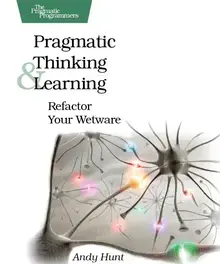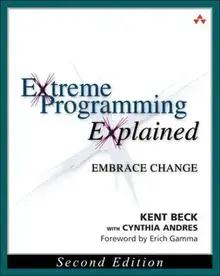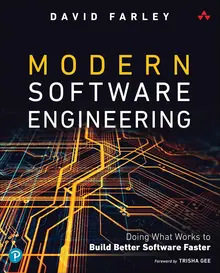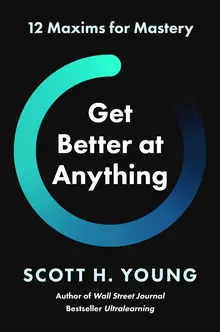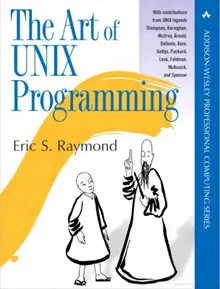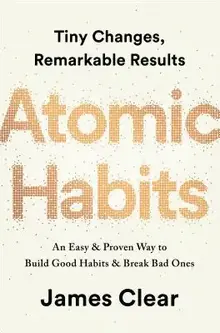Efficiency
Efficiency refers to the ability to achieve maximum output with minimum input. It involves optimizing the use of resources (such as time, energy, and materials) to accomplish tasks in the most effective and economical manner, thereby reducing waste and increasing overall productivity.
Below is an overview of content that matches the tag "efficiency".
Note that this list is not exhaustive, as it is automatically aggregated based on manually assigned categorizations.
If you notice a missing element, or think some of the items are wrongfully categorized, please create a bug/improvement ticket on our github issue tracker.
Books tagged with "Efficiency"
Pragmatic Thinking and Learning
Refactor Your Wetware
Hunt, A. (2008) Pragmatic Thinking and Learning. The Pragmatic Bookshelf. isbn: 978-1934356050.
Pragmatic Thinking and Learning examines how developers can harness the way their brains absorb and apply new ideas. Andy Hunt shares techniques from decades of practice—ranging from deliberate experimentation to reflective journalling—to keep skills sharp. It treats learning as the professional’s main tool, encouraging readers to tailor habits and discover systems that fit their own preferences.
Extreme Programming Explained
Embrace Change
Beck, K.; Andres, C. (2004) Extreme Programming Explained. Addison-Wesley. isbn: 978-0321278654.
Extreme Programming Explained centres on daily engineering practices—pairing, test-driven development, continuous integration—that keep teams adaptable. Kent Beck and Cynthia Andres advocate short feedback loops, shared ownership, and sustainable pace instead of rigid process prescription. It remains a key reference for developers who want to ground agile values in concrete software practices.
Modern Software Engineering
Doing What Works to Build Better Software Faster
Farley, D. (2021) Modern Software Engineering. Addison-Wesley Professional. isbn: 978-0137314911.
Modern Software Engineering reframes development as a disciplined, experiment-driven activity built on fast feedback. Dave Farley connects lean principles with practices such as trunk-based development, test automation, and continuous delivery pipelines. The book serves as a reference for teams that want to scale quality without sacrificing speed.
Get Better at Anything
12 Maxims for Mastery
Young, S. H. (2024) Get Better at Anything. Harper Business. isbn: 978-0063256675.
“Get Better at Anything: 12 Maxims for Mastery” guides readers through the process of mastering a skill using a set of practical maxims.
These maxims include “The best way to learn is to do,” “Experience doesn’t ensure expertise,” “Feedback is king,” and “The mind is not a muscle.”
Young effectively conveys the importance of deliberate practice and the necessity of fast feedback loops in a clear and concise manner.
The author writes in an approachable style, simplifying complex ideas for easy understanding. He debunks widely held misconceptions
and offers practical advice on enhancing the learning process. Filled with real-world examples and actionable insights,
this book is a must-read for anyone looking to improve their skills and serves as a valuable reference for educators,
coaches, and mentors who help others in their learning journey.
Whether you’re aiming to excel in a hobby or advance professionally,
Young’s guidance will equip you with the tools needed for continuous improvement.
Raymond, E.S. (2003) The Art of Unix Programming. Addison-Wesley. isbn: 978-0131429017.
The Art of Unix Programming captures the Unix philosophy through essays on simplicity, modularity, and composability. Eric S. Raymond profiles successful tools and communities to show how small programs that do one thing well combine into powerful systems. The collection remains a valuable reference for developers who want to design software with clear boundaries and reusable interfaces.
Atomic Habits
An Easy & Proven Way to Build Good Habits & Break Bad Ones
Clear, J. (2018) Atomic Habits. Avery. isbn: 0735211299.
James Clear breaks habit formation into small, compounding actions linked to identity, cues, cravings, and rewards. He offers frameworks such as habit stacking and environment design to make good behaviours easier and bad ones harder. The book helps readers build sustainable routines whether they want personal growth or team-level improvements.
